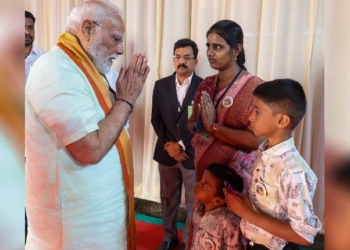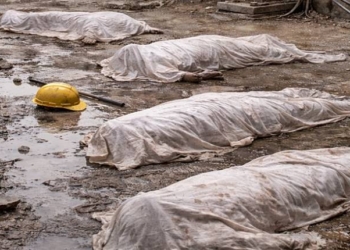New Delhi: The Delhi High Court on Tuesday reserved its verdict on the Directorate of Vigilance and Special Secretary (Vigilance) Y.V.V.J. Rajasekhar’s appeal against a single-judge order of no coercive steps be taken by any authority against six PWD officials, who have challenged the show-cause notices issued to them over the alleged gross violations of rules during the renovation of Chief Minister Arvind Kejriwal’s official residence.
On September 15, Justice Chandra Dhari Singh had passed an interim order observing that despite an undertaking given to the court by the city authorities that no coercive steps shall be taken against the officials, steps were taken against them in the “teeth of the judicial order”.
The Directorate of Vigilance has contended that the order was passed without appreciating the fact that the alleged assurances were without any authority.
On August 17, the high court had sought the response of the Delhi government and others on a plea filed by six PWD officials challenging the show-cause notices.
The plea filed by the six officials, represented by senior advocate Salman Khurshid, seeks to quash the show-cause notices issued by the Special Secretary (Vigilance).
Senior advocate Rahul Mehra and the Delhi government’s standing counsel Santosh Kumar Tripathi, representing the Directorate of Vigilance and PWD, had assured the court that no coercive measures would be taken against the officials until the next hearing on October 12.
On September 15, the single judge had passed an interim order on a fresh application moved by the PWD officials seeking to restrain the authorities from ordering departmental or criminal action against them in contravention to the assurance given to the court.
Senior advocate Mohit Mathur appearing for the PWD officials had argued that some of the petitioners were transferred to Guwahati and disciplinary proceedings were also initiated against them despite the undertaking.
Advocates Rahul Mehra and Santosh Tripathi appearing for the Delhi government had said that no coercive steps have been taken by the authorities against any petitioner in violation of the undertaking.
“The contentions made by the learned senior counsel for the petitioners raises serious concerns for this court that an undertaking given by the standing counsel has been overlooked and disregarded.
“In case the state was willing to take any coercive steps against the petitioners, they should have moved an appropriate application seeking leave of the court for the same,” the court had observed.
Justice Singh had earlier issued notices to the Delhi government through the Directorate of Vigilance, Special Secretary (Vigilance), and the Public Works Department.
They were given a time-frame of four weeks to submit their counter affidavit in response to the petition.
The Directorate of Vigilance had previously issued show-cause notices to six PWD officials, including chief engineers, regarding the alleged violation of rules during the renovation of Kejriwal’s official residence. The officials were required to explain their actions.
The plea contends that the notices were issued without proper jurisdiction, competence, and with bias, alleging an abuse of the legal process.
The officials claim to be made scapegoats in a political dispute between the Lieutenant Governor of Delhi and the ruling Aam Aadmi Party.
The show-cause notices said that the PWD officials recorded on the files of the department that as per the requirement of the Chief Minister, changes have been made in the drawings of the interiors, which resulted in deviation in the total work done and the amount sanctioned for it. They claim that the renovation was done without adherence to building regulations and financial guidelines.
Additionally, the officials are alleged to have constructed a residential complex for the chief minister that exceeded the allowable size outlined by the Ministry of Housing and Urban Affairs guidelines.
The notices demand an explanation from the PWD officials for their actions, highlighting that they are in violation of the General Financial Rules, CPWD Manual, and CVC guidelines.
(IANS)













